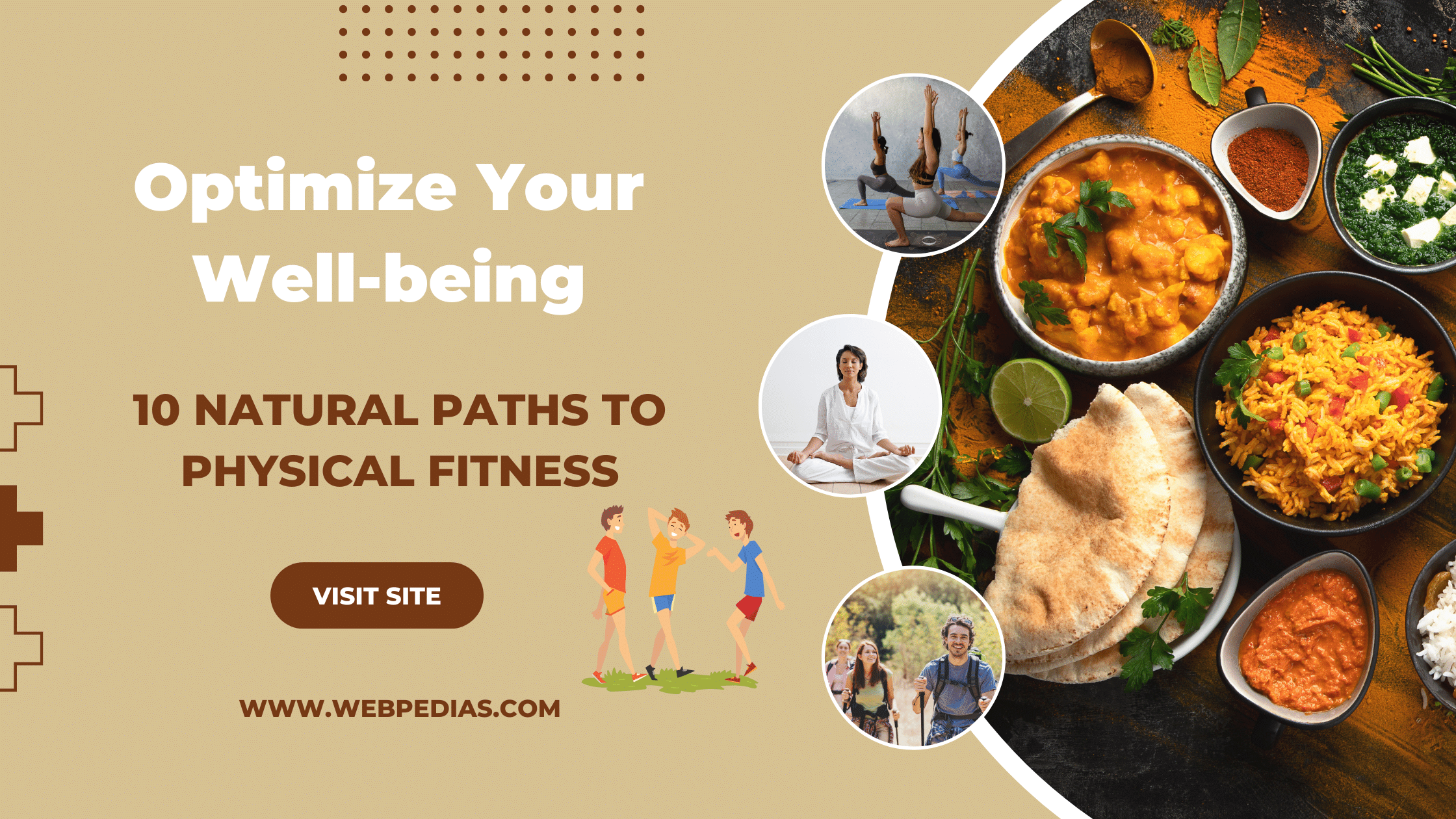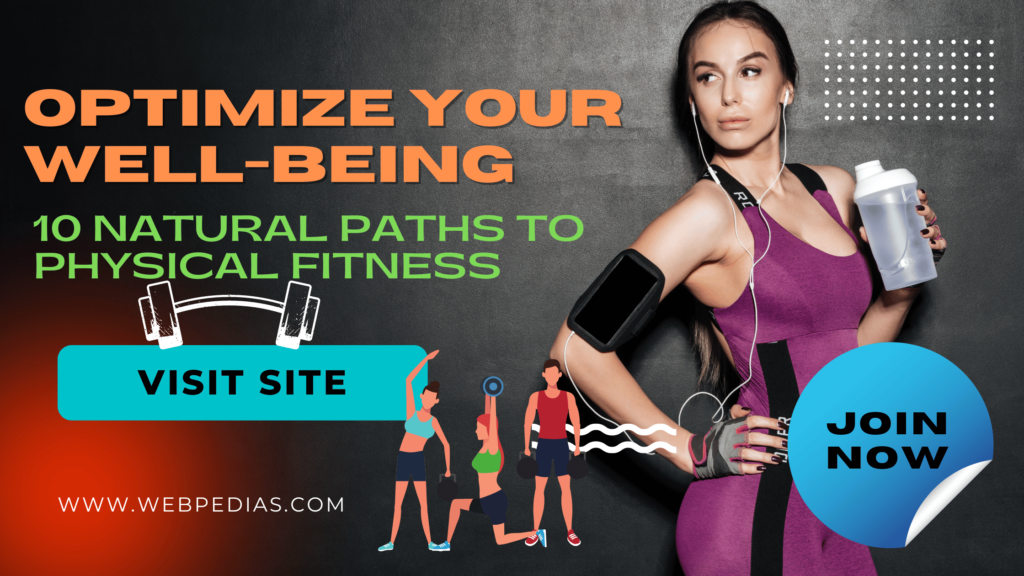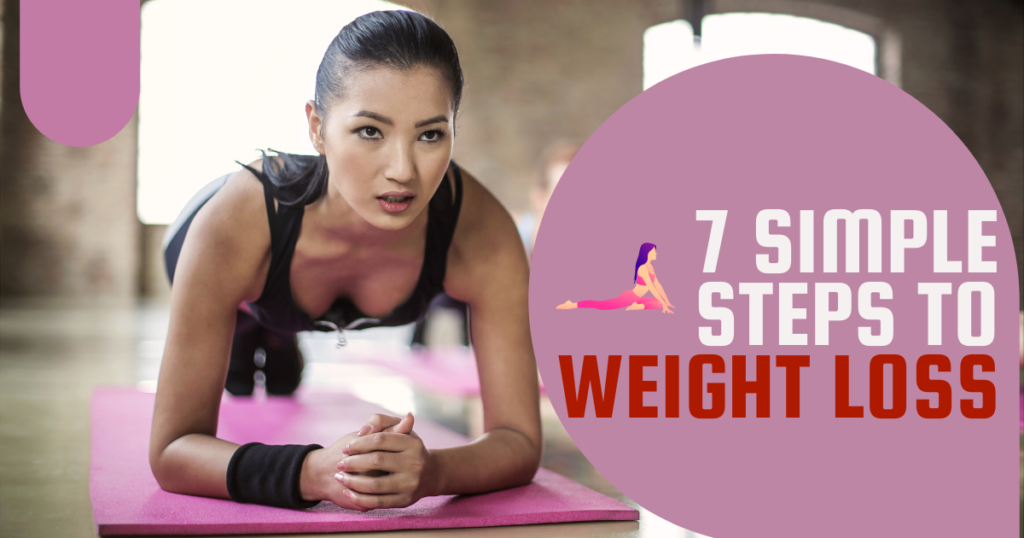From Exercise to Mindfulness: Crafting Your Organic Fitness Journey
Achieving and maintaining peak physical fitness is a goal shared by many people regardless of age, gender and background. In a world where sedentary lifestyles and unhealthy eating habits are prevalent, it is important to adopt effective and sustainable methods to enhance our physical well-being. Although there is no one-size-fits-all approach to fitness, some organic methods have proven to be highly effective. In this article, we will explore the top 5 biological processes, highlighting their merits, demerits and their effect on the body for achieving optimum fitness levels.
1. Regular Exercise Routine:
At the core of any successful fitness journey is consistent exercise. Regular physical activity not only boosts heart health and muscle strength but also contributes to mental well-being.
Key benefits include:
– Increase in metabolism and calorie expenditure
– Improve muscle tone and bone density
– Improves mood through the release of endorphins
– Better sleep patterns and stress management
Merits:
– Long Term Weight Management
– Reduced risk of chronic diseases
– Improved circulation and oxygen delivery
– boosted self-confidence and body image
Demerits:
– Risk of injury if not performed correctly
– irritation or muscle strain due to excessive training
– time-consuming and requires continued commitment
2. Balanced Nutrition:
Proper nutrition plays an integral role in achieving fitness goals. Consuming a balanced diet rich in nutrients fuels the body for optimum performance.
Key benefits include:
– Sufficient energy level for workout
– Efficient muscle repair and recovery
– Strong immune system and disease prevention
– Healthy skin, hair and nails
Merits:
– Weight control through portion management
– Decreases the risk of diet related diseases
– Improve digestion and gut health
– Enhanced Cognitive Function
Demerits:
– Challenge of maintaining a balanced diet
– Individual nutritional needs vary
– Misinformation about diet and supplements
3. Adequate hydration:
Staying hydrated is often underestimated but is of great importance in fitness. Water is essential for a variety of bodily functions, including temperature regulation, nutrient transport, and waste elimination.
Key benefits include:
– Improved exercise performance and stamina
– proper functioning of joints and muscles
– glowing skin and detoxification
– regulation of appetite and metabolism
Merits:
– Increase in physical and mental performance
– Prevention of issues related to dehydration
– Support for kidney function and the removal of toxins
Demerits:
– Overhydration leads to electrolyte imbalance
– Ignoring hydration cues during workouts
– Different water intake requirements based on activity level
4. Adequate Rest and Recovery:
Comfort is an important component in the pursuit of fitness that is often overlooked. Proper recovery allows muscles to repair and grow, thereby preventing injuries and burnout.
Key benefits include:
– muscle tissue regeneration and growth
– Decreased fatigue from exercise
– Maintaining hormonal balance
– Prevention of overtraining and immune suppression
Merits:
– Improved workout performance
– Reduced risk of injury and strain
– Mental rejuvenation and stress reduction
Demerits:
– Plateaus are formed due to insufficient rest.
– The temptation to skip recovery days
– Balancing active days with rest days can be challenging
5. Mind-body exercises:
Integrating mind-body practices such as yoga, Pilates and meditation can contribute significantly to overall fitness. These exercises emphasize flexibility, balance, and mental clarity.
Key benefits include:
– increased flexibility and range of motion
– Increased body awareness and posture
– stress reduction and relaxation
– Mindfulness and better focus
Merits:
– Reduced risk of injury through improved flexibility
– Better mind-body connection
– Effective stress management and emotional well-being
Demerits:
– Progress can be slow, it requires patience
– Not a primary source of cardiovascular fitness
– Cannot get quick visible results


6. High Intensity Interval Training (HIIT):
HIIT involves alternating between short intervals of intense exercise and periods of low-intensity recovery. This approach promotes cardiovascular fitness, burns calories and boosts metabolism.
Merits:
– Efficient calorie burn in less time
– Improve heart health
– Increased Fat Oxidation and Stamina
Demerits:
– High intensity may not be suitable for everyone
– Excessive exertion and potential risk of injury
– Requires careful customization based on fitness level
7. Functional Training:
Functional exercises mimic everyday activities and emphasize core strength, stability and coordination. This approach enhances overall body efficiency and reduces the risk of injury.
Merits:
– Improve body balance and posture
– Improved performance in daily activities
– Decreases the likelihood of muscle imbalance
Demerits:
– Correct form requires proper guidance
– Don’t just focus on cardiovascular fitness
– Can’t be a fast beauty change
8. Outdoor Activities:
Engaging in outdoor activities such as hiking, bicycling or playing sports provides both physical and mental benefits. Fresh air, natural surroundings and variety contribute to a complete fitness routine.
Merits:
– exposure to sunshine to produce vitamin D
– Increase in mental health and decrease in stress
– Enjoyment and inspiration through variety
Demerits:
– Weather dependent, limited stability
– Access to suitable outdoor locations can be challenging
– Ability to work hard in extreme conditions
9. Group Fitness Classes:
Participating in group fitness classes provides a social aspect of fitness while providing structured workouts led by professionals. Classes like Zumba, Spinning, and dance aerobics cater to a variety of preferences.
Merits:
– Motivation through group dynamics
– Access to expert-led workouts
– Opportunity to try different exercise styles
Demerits:
– Fixed class schedules may not fit all lifestyles
– Some classes may not suit individual goals
– Risk of overwork due to group competition
10. Active Traffic:
Incorporating physical activity, such as walking or biking, into your daily commute can contribute to your fitness journey. It saves time, reduces carbon footprint and provides a sustainable approach.
Merits:
– regular low-impact exercise
– Time-efficient and eco-friendly
– Improve cardiovascular health and stamina
Demerits:
– Feasibility depends on distance and infrastructure
– Safety concerns on some traffic routes
– Can’t replace dedicated workout sessions
In conclusion, achieving physical fitness is a multidimensional endeavor that requires a holistic approach. Incorporating these ten moves into your fitness routine can add more variety to your approach and yield positive results. Although each process has its own merits and demerits, their collective effect on the body is profound. Through commitment, consistency and informed decision making, you can tailor these processes to your individual needs and preferences, ensuring that your journey towards fitness is not only effective but also sustainable in the long run. Always make safety a priority, listen to your body and seek professional guidance when needed.



